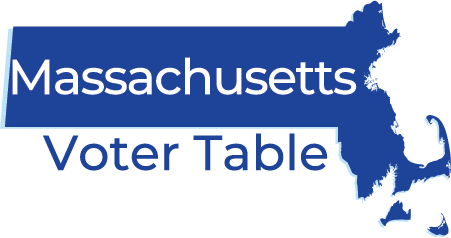On the Boston Common this week, a heckler tried to get his message across to the city’s recently elected mayor, Michelle Wu. Yelling out at a news conference, he addressed Wu by name multiple times. But she wasn’t there. Unknowingly, the man was actually shouting at Beth Huang, a Chinese American woman who leads a voter engagement nonprofit in the city.
“I didn’t quite realize that someone was directing their comments at me until probably 30 seconds after it started,” Huang, executive director of Massachusetts Voter Table, told NBC Asian America. “At some point I realized someone was trying to heckle Michelle Wu, and it’s very clear that I’m not Michelle Wu.”
The unidentified protestor, a man wearing sunglasses and a mask, interrupted the conference, meant to encourage voter registration in preparation for this year’s elections. Interjecting about something unrelated, he said, “You’re a political puppet. … Why don’t you look into it, Mayor Wu? Look into that — you’ll find the truth, Mayor Wu.”
Huang says she didn’t feel like she was at risk of being harmed. There were co-workers, journalists and a large crowd around her during the event, some of whom helped in de-escalating the situation. But it isn’t the first time it’s happened.
“People have mistaken me for Michelle Wu at other times when I’ve been alone, and that’s definitely not the same,” she said. “I definitely have felt more threatened before.”
Though Wu wasn’t at Huang’s news conference, she did quip about the mix-up later on Twitter.
“If only being a 5’4” Asian woman imbued in me the powers of being mayor of Boston,” Huang tweeted after the incident.
“We should make some good trouble with this 💁🏻♀️💁🏻♀️,” Wu responded.
Despite the lighthearted way in which both women handled it, Huang says the episode made her realize the daily vitriol that Wu experiences as the first woman and person of color to be Boston’s mayor.
“The number of racist and anti-Asian comments about Michelle Wu, especially in connection to the vaccine mandate in Boston, is a disgusting reflection of racism and anti-Asian sentiment in one of the most democratic voting states in the country,” Huang said.
Viewing Asian Americans as interchangeable is something she’s seen many times in politics. People mix up her or her name not only with Wu, but with other East Asian women in politics, she says.
“It does make me think that often we’re not perceived to be as valuable as individual leaders, especially for people of color and immigrants and working-class people,” Huang said. “There’s so many Chinese people in Boston. I don’t understand. I wonder how many more people this happens to.”
